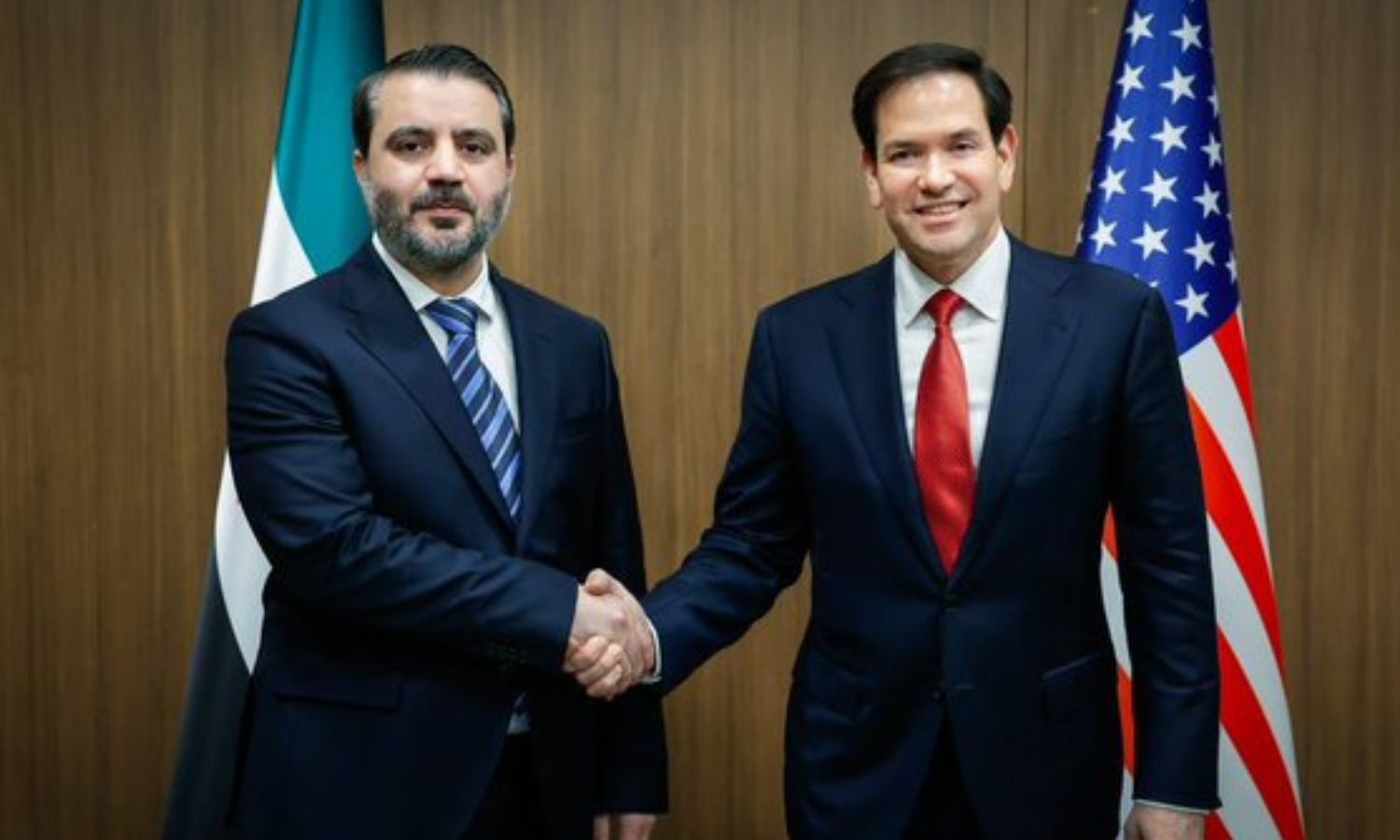Syrian Foreign Minister Asaad al-Shibani discussed the issue of counter-terrorism in Syria with his American counterpart, Marco Rubio, during a phone call between the two, Friday, July 4.
The two sides addressed the fact that the Islamic State (ISIS) still poses a real threat, especially after the suicide bombing that targeted the St. Elias Church in Damascus, according to a statement published by the Syrian Ministry of Foreign Affairs on its official Facebook page.
They noted that the June 22 bombing was one of dozens of attacks that Syrian security agencies have managed to thwart in recent months.
The U.S. Secretary of State stressed that Washington views ISIS as the greatest current threat to the Syrian government.
Washington also reaffirmed its commitment to sharing intelligence and supporting the development of Syrian counter-terrorism capabilities.
In the same context, U.S. State Department spokesperson Tammy Bruce said that the United States supports Syria in confronting terrorist groups.
She noted that Washington has lifted many sanctions to facilitate support for the Syrian government in enhancing its counter-terrorism capacities, as part of international efforts to ensure the stability of Syria and the region.
Bruce explained that the U.S. supports the Syrian government in combating forces seeking to destabilize and spread fear in Syria and the region, according to remarks reported by the official state news agency (SANA).
Regarding bilateral cooperation between Syria and the United States, al-Shibani and Rubio announced during the phone call that the two countries will coordinate the formation of a joint committee dedicated to the issue of chemical weapons.
Damascus also expressed increasing concern about Iran’s attempts to interfere in Syrian affairs, particularly in the wake of recent Israeli strikes that targeted Tehran.
For its part, the United States warned that despite its current distractions, Iran will not stop attempting to shift the balance of power within Syria.
On the issue of lifting U.S. sanctions, al-Shibani affirmed that Syria hopes to work with the United States to lift the sanctions, with the Caesar Act at the top of the list.
The phone call also touched on the participation of Syria’s transitional president, Ahmad al-Sharaa, in the meetings of the United Nations General Assembly.
Both sides emphasized that the continuation of the Caesar Act restricts the ability of companies and investors to engage economically in Syria over the long term.
Rubio confirmed that the U.S. administration continues to implement the directives of President Donald Trump regarding lifting sanctions on Syria, including efforts with Congress to repeal the Caesar Act in the coming months.
The U.S. Secretary of State described Trump’s decision on Syria as “historic,” saying it could reshape the future of Syria and the region.
The two also discussed the repeated Israeli attacks on southern Syria. Al-Shibani expressed Syria’s desire to cooperate with the United States to return to the 1974 Disengagement Agreement.
Rubio stated that the worst possible outcome for the region would be Syria’s fragmentation or a return to civil war.
The United States expressed its desire to reopen its embassy in Damascus and extended an official invitation to the Syrian Foreign Minister to visit Washington as soon as possible, a move that Syria’s Foreign Ministry described as a tangible shift toward resuming diplomatic relations between the two countries.
Syrian–Israeli Talks
U.S. Special Envoy to Syria Thomas Brock stated in an interview with The New York Times on July 3 that Syria and Israel are engaged in “meaningful” talks mediated by the United States, aimed at restoring calm along their shared borders.
Brock said the U.S. administration hopes Syria will join the Abraham Accords, which established diplomatic relations between Israel and four Arab countries during Trump’s first term.
He warned that the Abraham Accords could take time, as Syria’s transitional president, Ahmad al-Sharaa, may face internal resistance. “He must move slowly,” Brock added.
Regarding Trump’s signing of an executive order to end U.S. sanctions on Syria, Brock explained that rather than issuing strict demands, the U.S. administration set specific goals for the Syrian government to work toward, while Washington monitors progress.
These indicators include reaching a peaceful settlement with Israel, integrating the U.S.-backed and Kurdish-led Syrian Democratic Forces (SDF), which control northeastern Syria, and investigating the fate of Americans who went missing during the war.
Concerning concerns among U.S. officials about the thousands of foreign fighters who came to Syria to participate in the war—most of them with jihadist groups—Brock said Washington realizes that Syria cannot expel those who remain and that excluding them could pose a threat to the new government. Therefore, the Trump administration expects transparency about the roles assigned to them.
Brock also stated that lifting U.S. sanctions had proven more effective than maintaining them in encouraging change and in meeting Syria’s specific demands, adding that successive sanctions had never succeeded in any case.
Syrian-American Talks on Counterterrorism Enab Baladi.
Hence then, the article about syrian american talks on counterterrorism was published today ( ) and is available on ُEnabbaladi ( Syria ) The editorial team at PressBee has edited and verified it, and it may have been modified, fully republished, or quoted. You can read and follow the updates of this news or article from its original source.
Read More Details
Finally We wish PressBee provided you with enough information of ( Syrian-American Talks on Counterterrorism )
Also on site :
- California Dreamin’: NBC Kicks Off 2028 L.A. Olympics Marketing Campaign With Kate Hudson (Exclusive)
- Zelensky tells BBC Putin has started WW3 and must be stopped
- Kate Hudson Delivers Powerhouse Performance of 1966 Hit in New Olympics Promo

